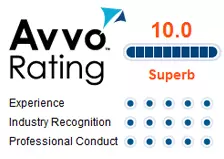In Michigan, when the police find a vehicle that has been in an accident, abandoned or otherwise left by the side of the road, it is not unusual for them to go to the home where the abandoned car is registered, enter the home and arrest the occupant for drunk driving. In many cases this is unlawful police action.
At the Barone Defense Firm we have been successful in fighting this unlawful police activity and have had drunk driving cases like this dismissed. A very recent unpublished case in Michigan by the name of People vs. Burdine (2009) addresses this issue and has ruled again that such entry is illegal. That court held that:
Both the Michigan and United States Constitutions afford protection against unreasonable searches and seizures and, as a general rule, a warrantless search is considered unreasonable. People v Brzezinski, 243 Mich App 431, 433; 622 NW2d 528 (2000). However, a grant of consent to conduct a search obviates the warrant requirement, so long as the consent is granted freely, unequivocally, and intelligently. People v Galloway, 259 Mich App 634, 648; m675 NW2d 883 (2003). Consent is valid if granted by the person whose property is subject to the search, or from a third party possessing common authority over the property. Illinois v Rodriguez, 497 US 177, 181; 110 S Ct 2793; 111 L Ed 2d 148 (1990). An entry may also be valid if a third person without actual common authority consents to the search if the police officer reasonably believed that the third person had authority to consent. Id. at 186. “The burden of establishing that common authority rests upon the State.” Id. at 181. Furthermore, in Michigan, the prosecution is required to demonstrate, by clear and convincing evidence, that “consent was freely and voluntarily given” under the totality of the circumstances. People v Raybon, 125 Mich App 295, 303; 336 NW2d 782 (1983). Evidence obtained in violation of the Fourth Amendment’s protections against illegal searches and seizures is subject to the exclusionary rule, which precludes the prosecution from presenting the evidence at trial. People v Goldston, 470 Mich 523, 528; 682 NW2d 479 (2004), citing Mapp v Ohio, 367 US 643, 665, 660; 81 S Ct 1684; 6 L Ed 2d 1081 (1961).
I have also written about this topic in my book Defending Drinking Drivers:
§ 536.12.1 Exigent Circumstances Not Sufficient to Allow Warrantless Entry
For a case finding that exigent circumstances did not exist see State v. Scott, 126 P.3d 567 (N.M. App. 2005) cert. granted (Jan 05, 2006). Here the defendant was observed on his motorcycle “popping wheelies.” The officer considered this “shocking” behavior, and initiated pursuit, but later lost sight of the motorist. The officer recorded the license plate number for later use. The officer was eventually able to match the information he had recorded with a motorcycle plate, and two days later at 12:21 a.m., while in full uniform, he went to the defendant’s home with neither an arrest warrant nor a search warrant. Upon arrival he noticed a motorcycle on the property but did not attempt to match it with the incident. The officer knocked on the front door and was greeted by the defendant’s roommate. This person then went to wake up the defendant, and when the defendant came to the door, the officer asked him to step outside for questioning. A Miranda warning was given to the defendant, and he admitted that he was the driver of the motorcycle. The officer advised him that he may be charging him with reckless driving and left. At 6:30 a.m. that same morning, the officer returned and served the motorist with a citation. A motion to suppress evidence was granted in the metropolitan court. The New Mexico Court of Appeals found that the seizure was unreasonable in part because there was no exigency, such as officer safety, a danger of destroyed or dissipated evidence, or possibility of offender flight. The court also found that the defendant was “seized” because the officer’s contact with the motorist was conducted in a “particularly compelling manner,” and the motorist was not “free to exercise his own will.” The court also stated that a person awoken in the middle of the night is “particularly vulnerable.” The court suppressed the evidence obtained finding that the seizure exceeded permissible constitutional limitations on the type of citizen participation the police may compel.
An unpublished opinion from Michigan with a similar result is People v. Kucharski, 2004 WL 2192629 (Mich.App.,2004). In this case there was an accident, and the defendant fled the scene. His vehicle was traced to a particular address where the police attempted to gain entry. At first this was refused, but then the police were allowed to enter “just past the door and stay there.” The defendant was later found asleep in his street cloths and was ultimately arrested for drunk driving. The state argued that the entry was lawful due to exigent circumstances. The found however that the state had failed to cite any “competent authority that stands for the proposition that where intoxication is an element of a suspected crime, and the police are in a position to take the suspect into custody while still intoxicated in connection with that alleged crime, the police are excused from endeavoring to obtain a warrant before entering the suspect’s home to seize his or her person.” The court also concluded that “because a police officer should know that alcohol lingers in the system for hours, and that medical science provides methods for calculating earlier alcohol levels on the basis of later-existing ones” that the circumstances were not “exigent.” It is interesting to note that these same arguments were made by the defendant in the Thompson case cited above, but were rejected by the California Court. For other cases finding that warrantless entries were improper see Patzner v. Burkett, 779 F.2d 1363 (8th Cir. 1985); Norris v. State, 338 Ark. 397, 993 S.W.2d 918 (Ark. 1999); State v. Bolte, 115 N.J. 579, 560 A.2d 644 (1989); City of Elyria v. Tress, 595 N.E.2d 1031 (Ohio Ct. App., Lorain County 1991); State v. Flegel, 485 N.W.2d 210 (S.D. 1992).
If you are facing a Michigan drunk driving case where the police came to your home to make the arrest, please contact us today so that we can discuss how we can help.
Related posts:
- Improper Police Arrest
- Find Michigan DUI Lawyer | West Bloomfield Drunk Driving Cases Possibly Compromised
- Despite Risk of Death Poorly Trained DUI Police to Begin Drawing Blood by Force at Roadside
- Retrograde Extrapolation in Michigan Drunk Driving Cases
- Michigan Minor in Possession Law Ruled Unconstitutional



